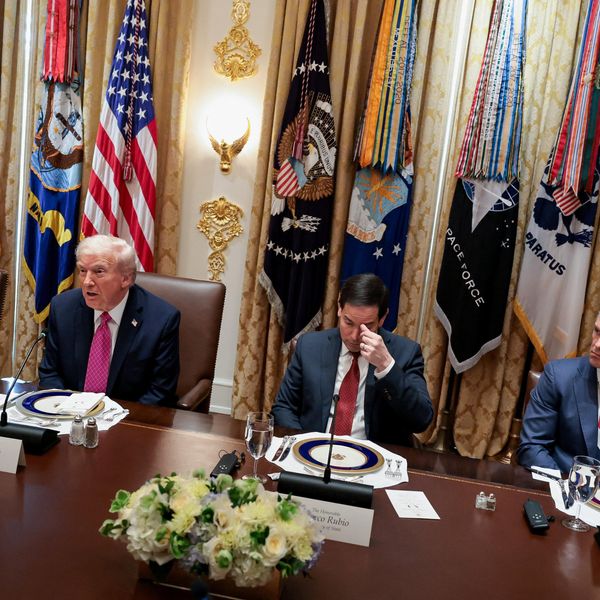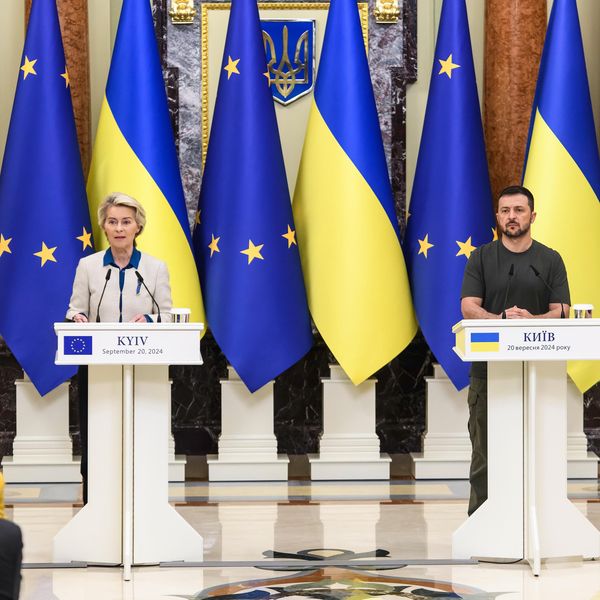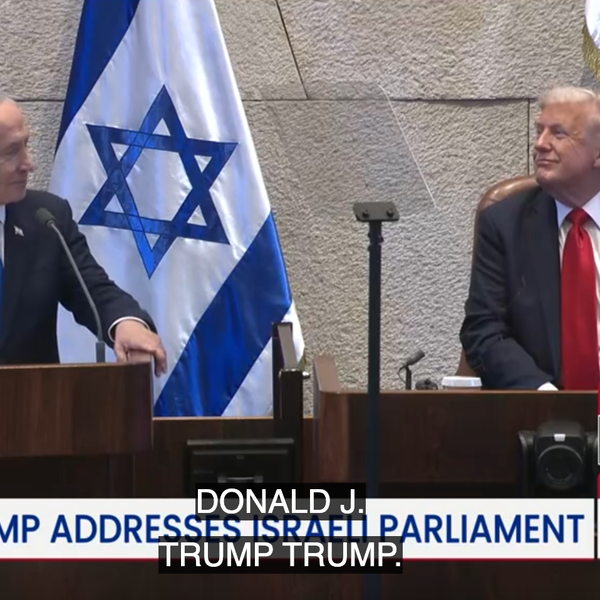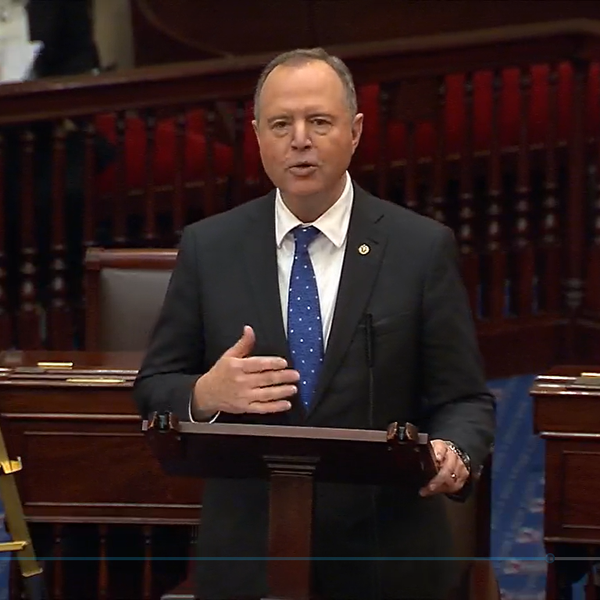The Biden administration has reportedly offered the United Arab Emirates a guarantee of military protection — one that could commit the United States to another war in the Middle East — as part of a push to keep the oil-rich monarchy in the U.S. orbit.
The UAE and its close ally Saudi Arabia have been pressuring the Biden administration to step up its support for the Arab monarchies, which are waging a cold war against Iran and intervening in the Yemeni civil war with U.S. assistance. Brett McGurk, the White House’s point-man for Middle Eastern affairs, traveled to Abu Dhabi last week to discuss a “strategic framework agreement” between the two countries. The American offer included “U.S. security guarantees,” Axios has reported.
That offer was apparently a step down from the UAE’s original ask. Saudi Arabia and the UAE had been pushing for a treaty alliance with the United States, and asking Israel to help lobby for it, Bloomberg News reported in March.
Under the U.S. Constitution, only Congress has the power to declare war, and all treaties must be approved by two-thirds of the Senate.
But it’s unclear whether the Biden administration has informed any senators of its current offer.
The White House declined to speak on the record. Responsible Statecraft reached out to all 100 U.S. senators, but only one office offered comment.
“Any security guarantees made on behalf of the American people would obviously require a discussion with Congress, and possibly a Senate vote,” said Matt Duss, foreign policy adviser to Sen. Bernie Sanders (I–Vt.). “The administration will need to explain how offering guarantees to a repressive authoritarian government like the UAE promotes America's interests and values.”
A spokesman for Sen. Patrick Leahy (D–Vt.) said that he did not have enough information to comment. A spokeswoman for Sen. Chris Murphy (D–Conn.) said she would not be able to comment by publication time.
Bruce Fein, a constitutional lawyer and former associate deputy attorney general under the Reagan administration, insists that the Biden administration cannot offer anything beyond its “good faith” without a Senate-approved treaty.
“The president has no constitutional authority to give a security pledge to anyone,” he said. “A treaty is what you need.”
Fein pointed out that even the North Atlantic Treaty, the agreement that created the NATO alliance, required members to go through their own “constitutional process” for military action before jumping to each other’s defense.
The only U.S. treaty ally in the Middle East is fellow NATO member Turkey.
Several other Middle Eastern states — Egypt, Israel, Bahrain, Kuwait, and Qatar — are listed as “major non-NATO allies,” which unlocks certain forms of military cooperation but does not include security guarantees. Biden added Qatar to the list earlier this year.
There are thousands of U.S. troops stationed in Bahrain, Kuwait, Qatar, and the UAE.
The UAE has been pushing for more U.S. backing since a wave of Yemeni rebel attacks earlier this year. The Houthi rebels attacked Abu Dhabi with missiles in mid-January, killing three immigrant workers at an industrial park, and have launched several failed raids since then.
The U.S. military responded to the January attacks by rushing a squadron of F-22 fighter jets and the guided missile cruiser USS Cole to the area. Less than a month later, U.S. forces in the UAE sheltered in bunkers and fired back during a Houthi missile raid.
All that additional support was not enough for the UAE, which cozied up to Russia and refused to take Biden’s calls as oil prices rose after the Russian invasion of Ukraine. Political pundits supported by the UAE also turned up their messaging against the Biden administration.
Professor Abdulkhaleq Abdulla, a former adviser to the UAE’s leadership, issued a thinly-veiled threat in a March op-ed, writing that the United States is “at risk of losing a regional partner” and “the task of repairing the misunderstanding falls on the shoulders of the Biden administration.”
“The UAE has invested much in its relationship with Washington over the past thirty years,” Abdulkhaleq warned.
Abu Dhabi is now calling in the favor it believes to be owed: a pledge for Americans to fight and die for the kingdom. Depending on how far Congress pushes back, it may get its way.















